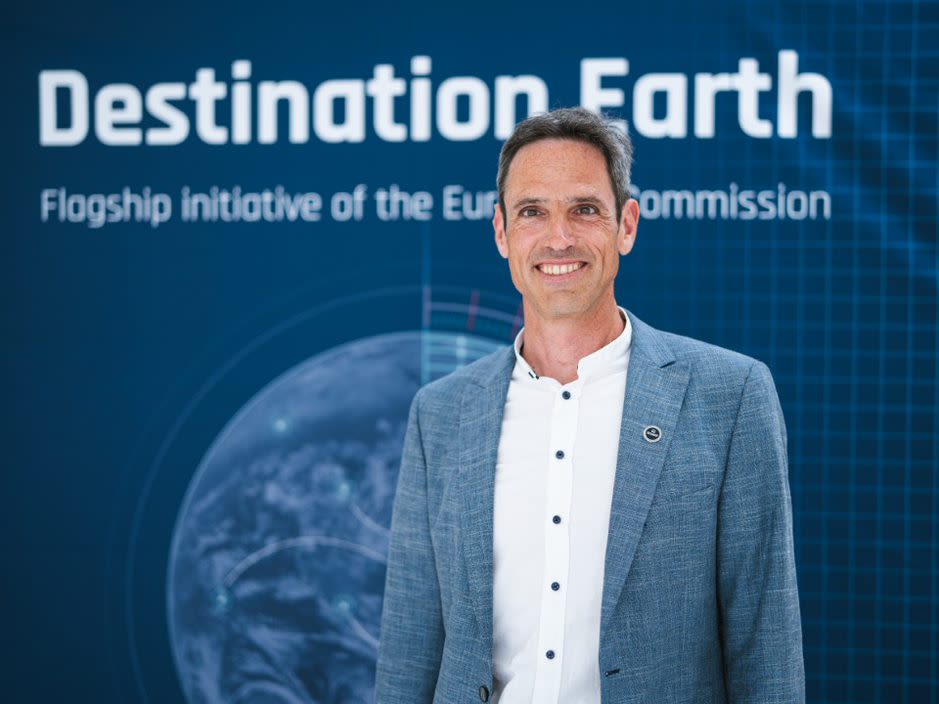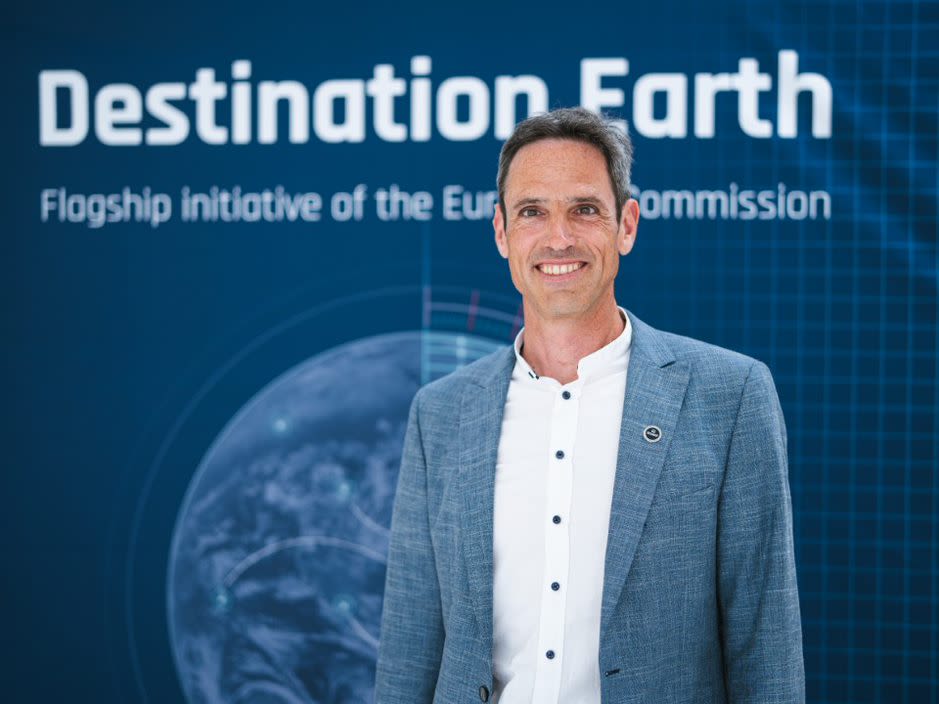Jörn Hoffmann, Application Partnership Lead for DestinE at the European Centre for Medium-Range Weather Forecasts (ECMWF) met stakeholders in The Hague on 3 July, during the first Netherlands DestinE Sounding Board, an event hosted by Netherlands International Research and Innovation Cooperation, the International Innovation department, and the Netherlands Space Office.
The meeting gathered members of the Netherlands institutions, research centres, universities and private sector to discuss the aims and the progress of the initiative.
“There was a lively discussion with many questions probing into how interested parties could be engaged, both programmatically and technologically.” said Hoffmann after the meeting. The Application Partnership Lead for DestinE at ECMWF outlined the DestinE vision of a codesign, integrated approach, where users will be involved in defining the specific features of the digital twins and the core platform and where Earth system modelling experts such as ECMWF will work closely with the impact sectors to ensure that the final DestinE outcome responds to the specific needs of the users. Ultimately, DestinE aims at creating a new climate and weather information system with its users at the center.

The commitment of DestinE to its stakeholders is crystallised in events such as the User eXchange, co-organised by ESA, ECMWF and EUMETSAT, the next of which will take place in Bonn in 13-14 November hosted by ECMWF. This broad partnership approach is also embodied through a comprehensive procurement policy, that is engaging with some of the leading European and international institutions in fields of climate and weather prediction and extreme scale computing.
As one of three entrusted entities for the initiative, ECMWF is responsible for the development of the first two digital twins and of the digital twin engine. As such, it has procured the services of a consortium led by Finlands’s CSC IT Center for the development of the Climate Digital Twin. The on-demand component of the Extremes Digital Twin is being developed by a wide European partnership led by Météo-France. The global component of the Extremes Digital Twin and the Digital Twin engine, the unified software infrastructure used to run the digital twins, exploit and interact with their data, are mainly developed at ECMWF.
Another key pillar of DestinE’s engagement with stakeholders are the Use Cases, oriented both to demonstrate the digital twins capabilities and to involve domain users in the codesign process.
The participants of the first Netherlands DestinE Sounding Board questioned ECMWF Partnership Lead for DestinE about the engagement of the climate and weather modelling and the high-performance computing (HPC)communities in the initiative. From the science and research sector, many were interested in understanding if it will be possible to run their own digital twin instances.
“Another topic in the discussion was the expected evolution of DestinE in future phases, in particular how other digital twins can be involved and how solid Earth processes (volcanic eruptions or tectonic risks) will be integrated.” said Hoffmann.
Destination Earth is a European Union-funded initiative launched in 2022, with the aim to build a digital replica of the Earth system by 2030. The initiative is being jointly implemented under the leadership of DG CNECT by three entrusted entities: the European Centre for Medium-Range Weather Forecasts (ECMWF), responsible for the creation of the first two ‘digital twins’ and the ‘Digital Twin Engine’, the European Space Agency (ESA) responsible for building the ‘Core Service Platform’, and the European Organisation for the Exploitation of Meteorological Satellites (EUMETSAT), responsible for the creation of the ‘Data Lake’.
We acknowledge the EuroHPC Joint Undertaking for awarding this project strategic access to the EuroHPC supercomputers LUMI, hosted by CSC (Finland), and the LUMI consortium, Marenostrum5, hosted by BSC (Spain) Leonardo, hosted by Cineca (Italy) and MeluXina, hosted by LuxProvide (Luxembourg) through a EuroHPC Special Access call.
More information about Destination Earth is on the Destination Earth website and the EU Commission website.
For more information about ECMWF’s role visit ecmwf.int/DestinE
For any questions related to the role of ECMWF in Destination Earth, please use the following email links:
